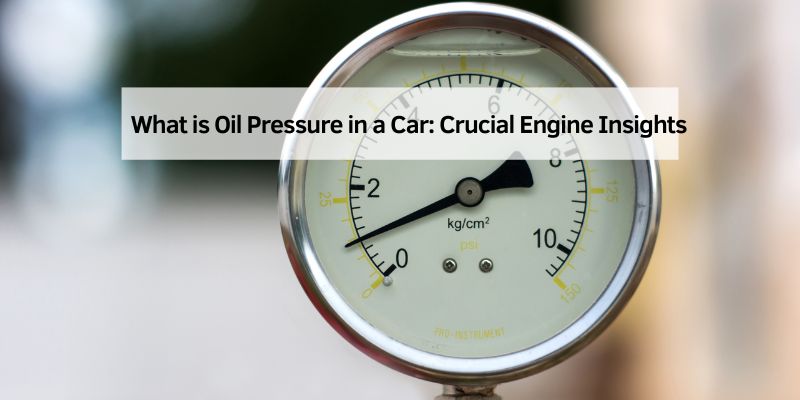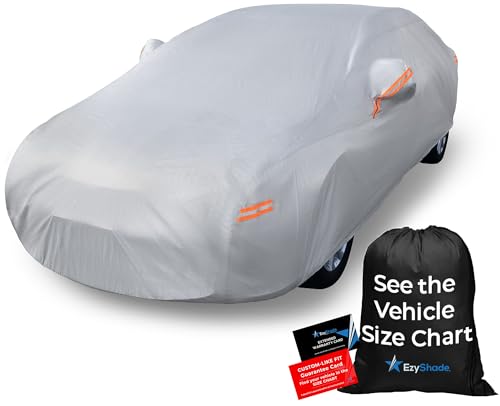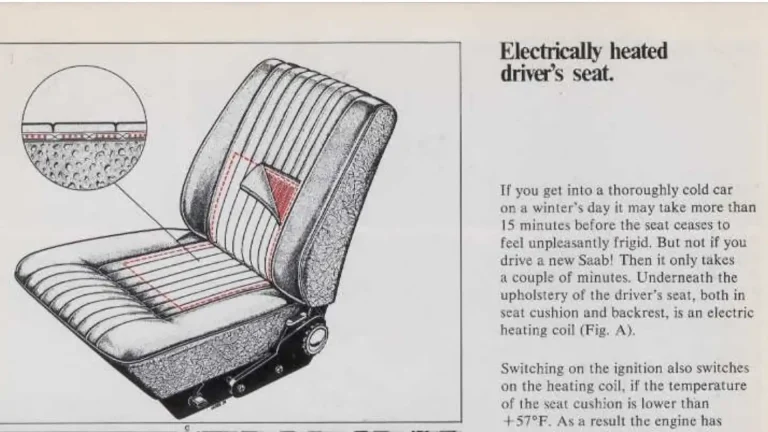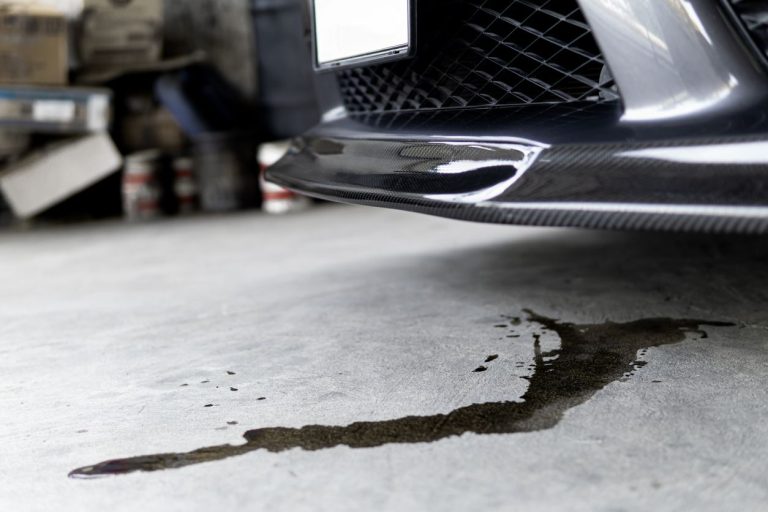What is Oil Pressure in a Car: Crucial Engine Insights
Oil pressure in a car refers to the force at which oil circulates through the engine. It ensures proper lubrication and cooling of engine parts.
Understanding oil pressure is crucial for maintaining vehicle health. A car’s engine relies on oil pressure to function smoothly. It prevents friction and wear. Without proper oil pressure, the engine can overheat or face serious damage. Drivers often overlook this vital aspect.
Yet, it plays a key role in engine performance and longevity. Monitoring oil pressure helps catch early signs of engine trouble. So, what causes changes in oil pressure? And how can you maintain it? This guide will explore everything from oil pressure basics to maintenance tips. Stay informed and protect your car’s heart—the engine. Dive into the world of oil pressure and keep your vehicle running strong.

Credit: www.machinerylubrication.com
Oil Pressure Basics
Oil pressure means the force of oil moving in the car engine. It is measured in pounds per square inch (PSI). Oil pressure shows if the engine is healthy. If the pressure is too low, the engine might get damaged. It can lead to big problems.
Oil pressure keeps the engine parts lubricated. Lubrication helps reduce friction. Less friction means less heat. Heat can ruin engine parts. High pressure can cause leaks. Low pressure can cause damage. The right pressure is crucial.
How Oil Pressure Works
Oil pressure helps keep the engine parts moving smoothly. It pushes oil through small passages in the engine. This oil forms a thin layer between parts. This layer is called a lubricant. Lubricant stops metal parts from rubbing together.
Oil pressure makes sure the oil reaches every part. It covers the pistons, crankshaft, and camshaft. These parts need oil to stay cool. Without oil, the engine might get too hot. This can cause damage.
Correct oil pressure is important. It helps parts last longer. Low pressure can cause parts to wear out. High pressure can be harmful too. It can lead to oil leaks. Keeping the right pressure is key for a healthy engine.
Factors Affecting Oil Pressure
Oil viscosity is how thick or thin the oil is. Thicker oil moves slowly in the engine. Thinner oil moves faster. The right oil thickness is important. It keeps the engine running well. If the oil is too thick, it can cause high pressure. If it’s too thin, it leads to low pressure. Always use the oil type that your car needs. Check the car manual for guidance.
Engine temperature changes oil pressure. Cold engines make oil thick. This causes high pressure. Hot engines thin the oil. This leads to low pressure. It is important to warm up the engine before driving. This helps the oil flow better. Keep the engine temperature steady. It helps maintain the right oil pressure.

Credit: blog.ecoflow.com
Common Oil Pressure Issues
Low oil pressure can damage the car engine. The oil pump might be weak. This means it cannot push oil well. Dirty oil filters can block oil flow. This makes pressure drop. Leaking oil is another problem. Oil escapes from the car engine. It is important to check for leaks. Thin oil can also cause low pressure. Thin oil does not stay in the engine well. Always use the right oil for your car.
High oil pressure can be bad too. It can strain the car engine parts. Thick oil can cause high pressure. The oil cannot flow easily. Blocked oil passages can also make pressure rise. The oil cannot move through the engine. This makes pressure build up. Faulty pressure relief valve can cause high pressure. This valve helps keep pressure normal. If broken, it might not work well.
Symptoms Of Oil Pressure Problems
The oil warning light is very important. It glows on the dashboard. This light means there’s a problem. Oil pressure might be too low. Ignoring it can damage the engine. The light is usually red or orange. Always check it immediately. It helps protect the engine.
Strange sounds from the engine are a bad sign. These noises can be knocking or ticking. They mean low oil pressure. Engines need oil to run smoothly. Without it, parts rub together. This causes the strange sounds. These noises can hurt the engine. Fixing them is important and urgent.

Credit: www.autotechiq.com
Diagnosing Oil Pressure Problems
An oil pressure gauge helps check the car’s oil health. It shows if the oil is moving well inside the engine. The gauge has a needle. This needle moves to show the pressure level. If the needle is too low, there might be a problem. The car might need more oil. Or, there could be a leak.
Pressure readings tell if the engine is safe. High pressure means oil is not moving well. This can harm the engine. Low pressure means there is not enough oil. This is also bad. A good car keeps oil pressure just right. Check the gauge often to keep the engine happy.
Maintaining Proper Oil Pressure
Oil changes are very important. They keep the engine running smoothly. Old oil can cause problems. It can make the engine work harder. Fresh oil helps the engine run better. Always change the oil on time. Follow the car manual. It tells you when to change oil. Regular oil changes keep the oil pressure stable. This is good for the car. It helps it last longer.
Choosing oil is important. Different oils work for different cars. Always check your car manual. It tells you the right oil type. Synthetic oils are often recommended. They work well in many cars. Viscosity matters. It shows how thick the oil is. Thicker oils can help in hot places. Thinner oils are better in cold places. Picking the right oil keeps the engine healthy. It keeps the oil pressure just right.
Advanced Oil Pressure Solutions
Oil pressure sensors help in monitoring the car’s oil pressure. They send signals to the dashboard. A warning light appears if pressure is low. This helps prevent engine damage. Regular checks ensure the sensor works well. A faulty sensor gives wrong signals. This might mislead the driver.
Control valves manage the oil flow in the engine. They keep pressure at a safe level. If pressure is too high, it can harm the engine. These valves adjust oil flow automatically. This ensures smooth engine performance. Regular maintenance of these valves is important.
Frequently Asked Questions
What Happens When Oil Pressure Is Low?
Low oil pressure can lead to engine damage. Insufficient lubrication causes overheating and increased wear. Check oil level and quality promptly. Repair any leaks or faulty components to prevent severe engine issues. Regular maintenance helps avoid low oil pressure problems and extends engine life.
What Is The Normal Oil Pressure For A Car?
Normal oil pressure for a car ranges between 25 to 65 psi. It may vary based on engine design. Consistent oil pressure ensures proper engine lubrication, minimizing wear. Always refer to the vehicle’s manual for specific recommendations. Regularly monitor oil pressure to maintain engine health.
Can You Drive A Car With Low Oil Pressure?
Driving with low oil pressure is unsafe. It risks severe engine damage. Stop immediately and check the oil level. Address the issue before continuing to drive to prevent costly repairs. Regularly maintaining the oil system ensures your vehicle runs smoothly and prolongs engine life.
Why Would My Oil Pressure Be Too High?
High oil pressure can be caused by a faulty oil pressure relief valve or a clogged oil passage. Excessive oil viscosity and a malfunctioning oil pump may also contribute to the issue. Regular maintenance and timely repairs are essential to prevent engine damage due to high oil pressure.
Conclusion
Understanding oil pressure is crucial for your car’s health. Regular checks ensure smooth engine performance. Low oil pressure can signal engine problems. Address issues early to avoid costly repairs. Maintaining proper oil levels extends engine life. Use quality oil for best results.
Stay informed, keep your car running smoothly. Simple steps make a big difference. Keep your car’s oil pressure in check. Protect your engine, enjoy a reliable ride.







